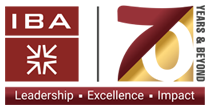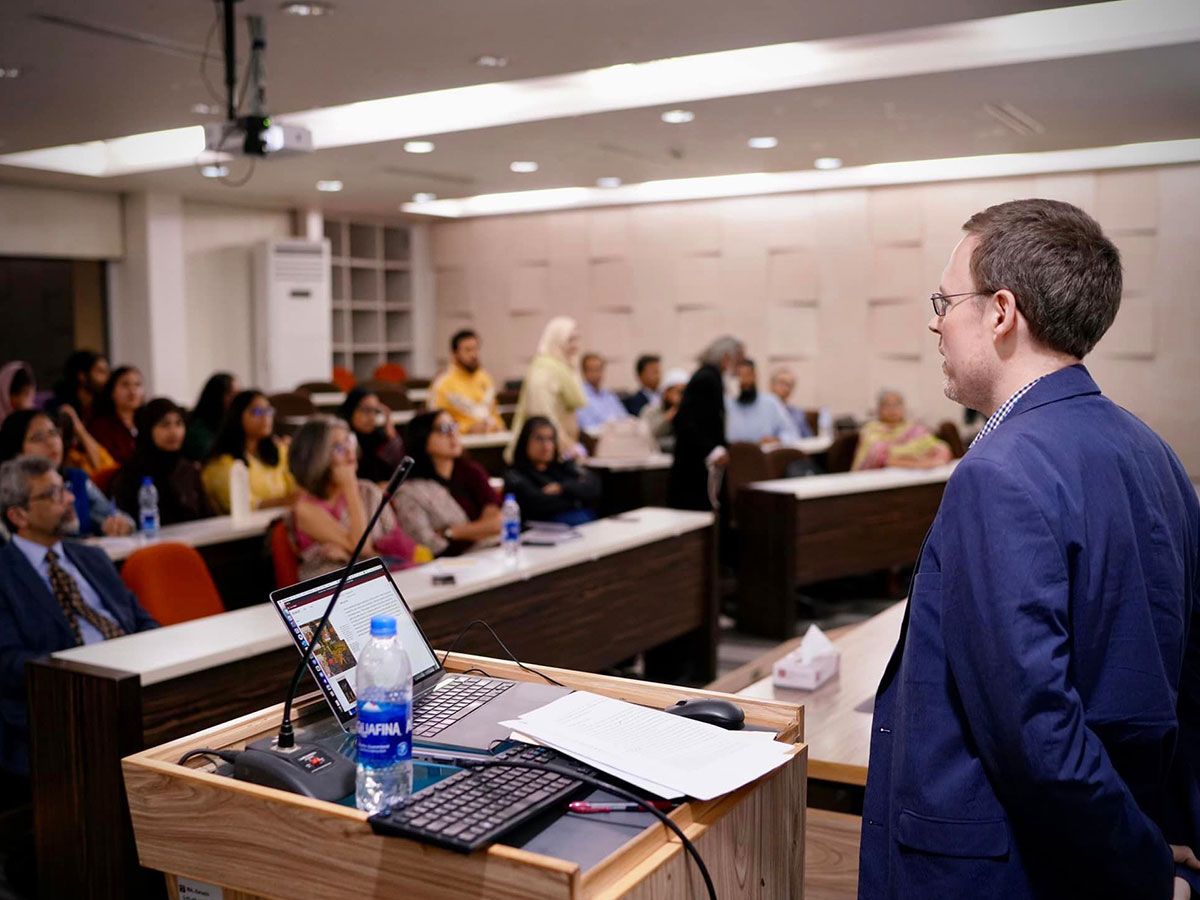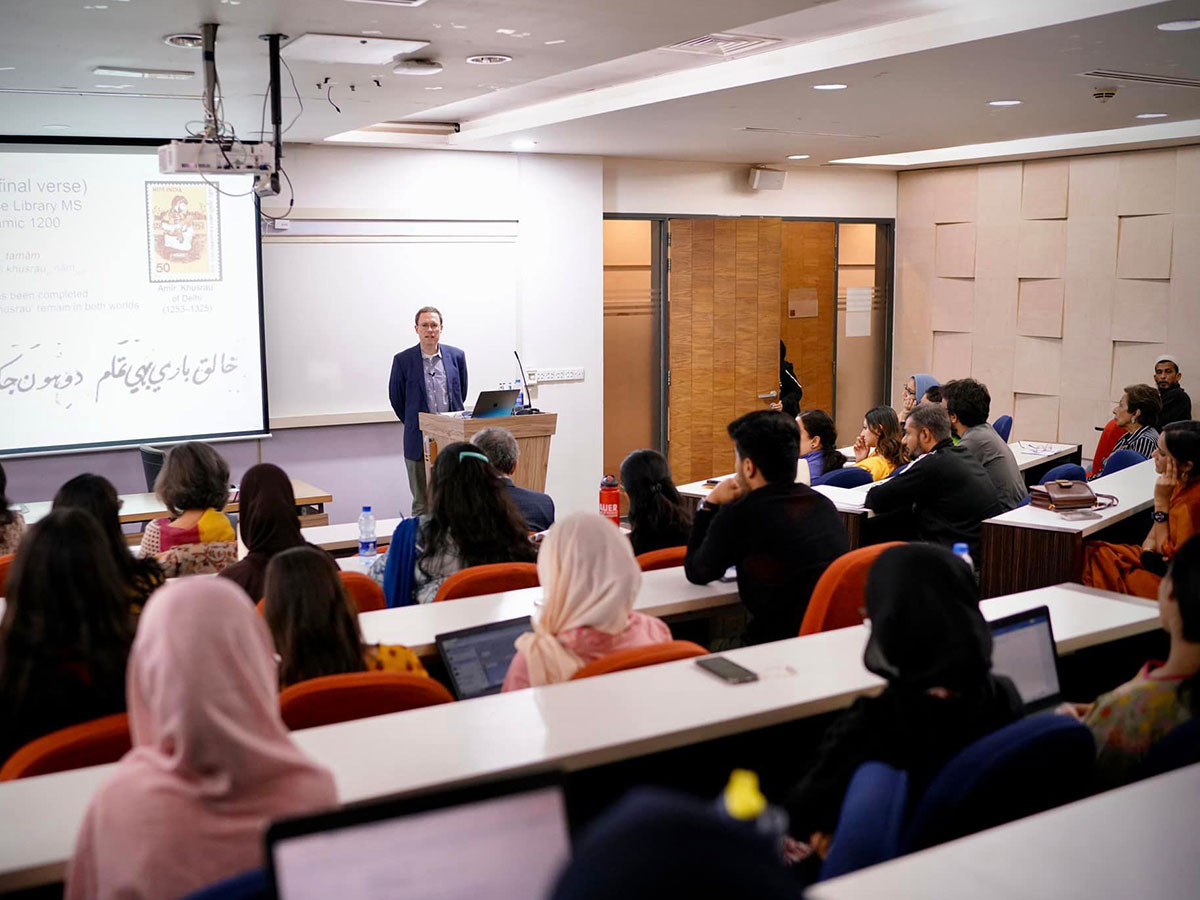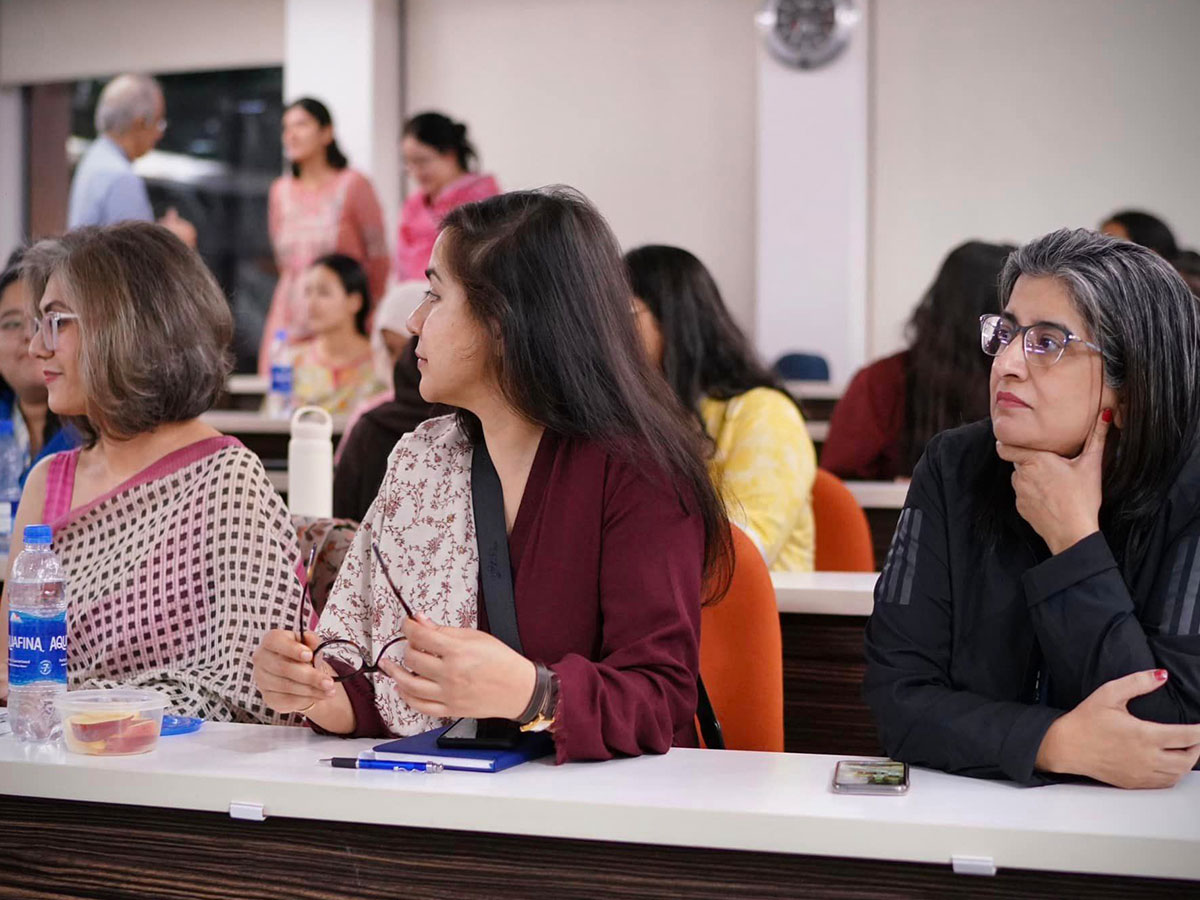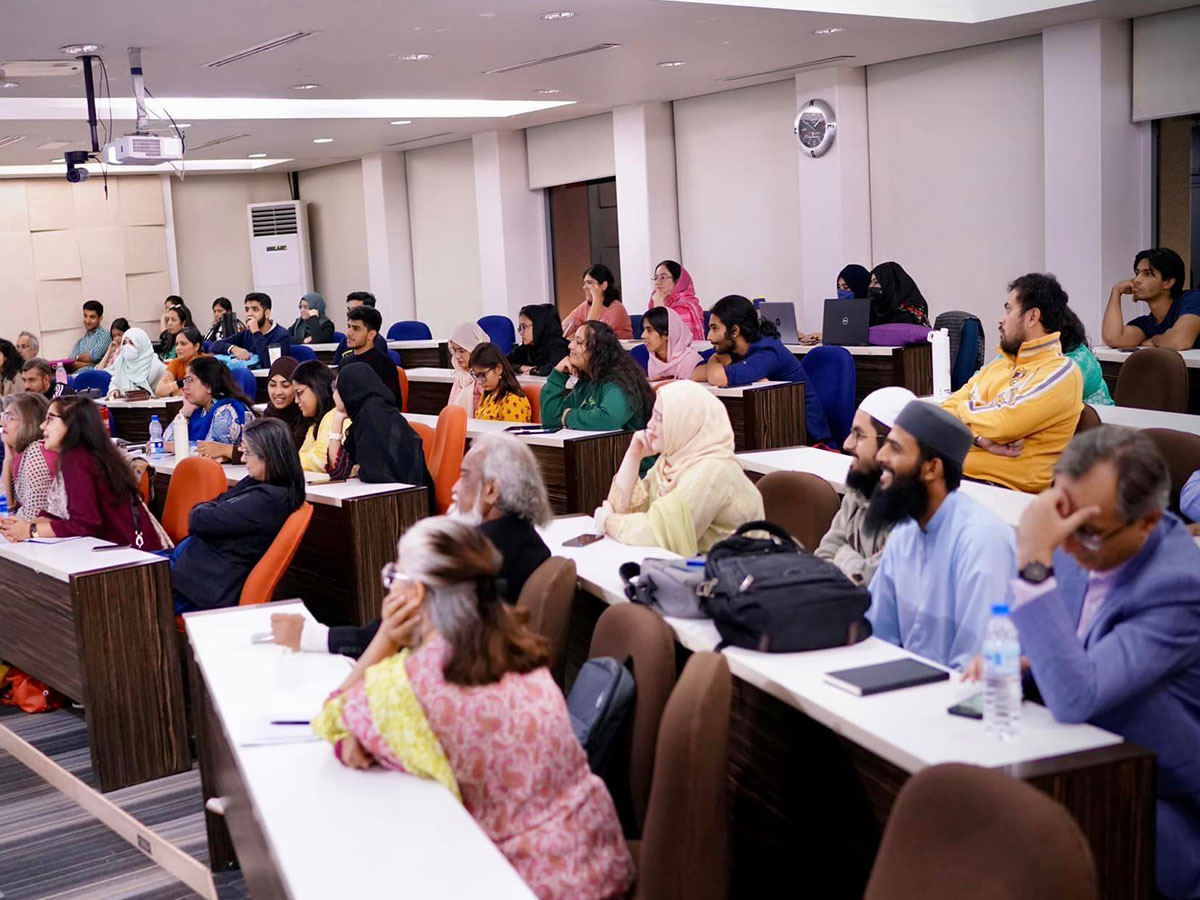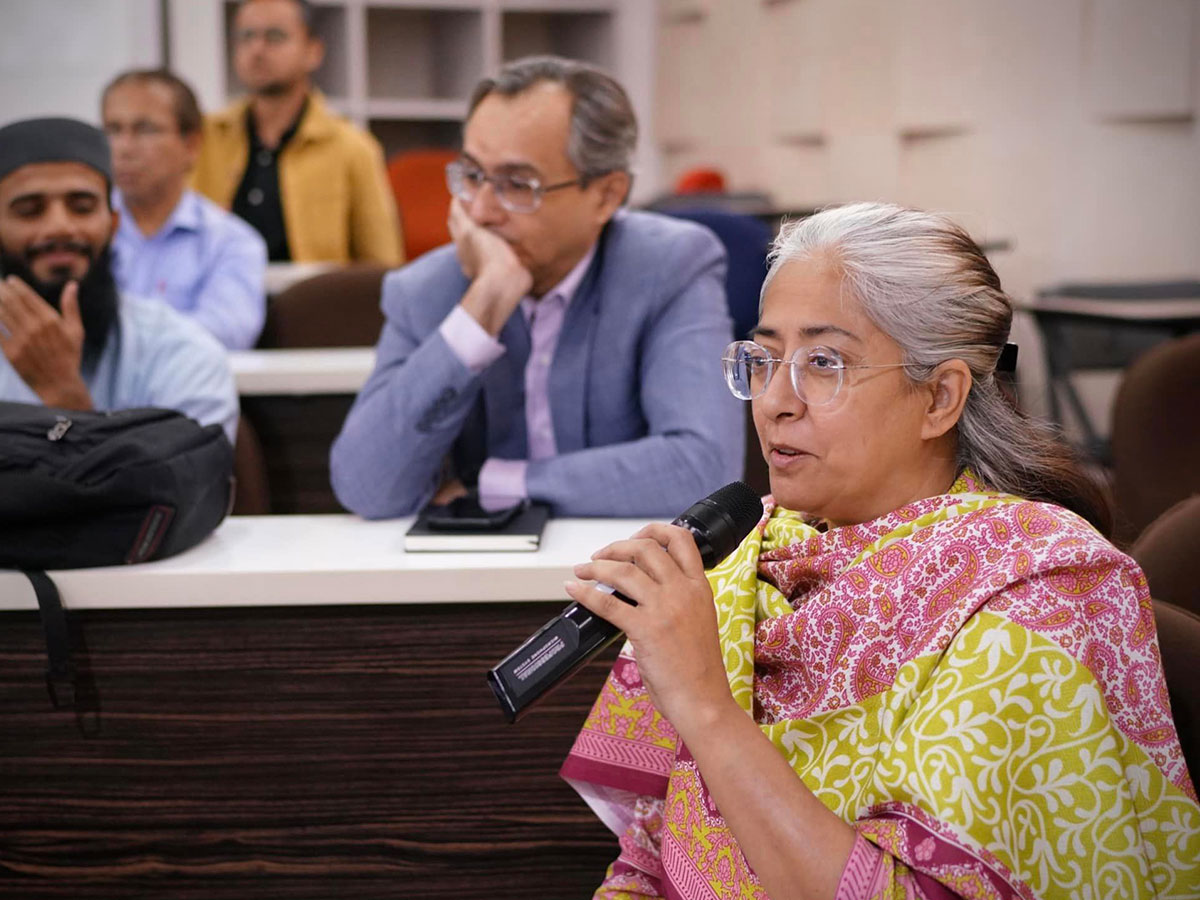SESS organizes a talk on ‘The Divine by Any Other Name: Multilingual Vocabularies and Sufi Romances’
December 06, 2023: The department of Social Sciences and Liberal Arts, School of Economics and Social Sciences (SESS), IBA hosted a talk titled ‘The Divine by Any Other Name: Multilingual Vocabularies and Sufi Romances’, by Dr. Walter N. Hakala, Associate Professor and Director of Undergraduate Studies, Department of English, University at Buffalo, SUNY, USA. The talk was organized by Dr. Anum Tariq Dada, Assistant Professor of English Literature, SESS, and it was enthusiastically attended by the IBA community, and by members from diverse organizations and institutions in Karachi and abroad, including Anjuman Taraqqi-i Urdu, Sindh Madressatul Islam University, revealing the depth of interest in the city in the literary history of Urdu and South Asia.
Dr. Hakala is the author of Negotiating Languages: Urdu, Hindi, and the Definition of South Asia (Columbia University Press, 2016; Primus, 2017) and has published articles on coffee in 18th-century Delhi, multilingualism, food history, and South Asian lexicography. The talk revolved around his current project, which surveys Urdu epigraphy, as well as his inspiration for studying Urdu-Hindi in general, and the history of dictionary-making in Urdu in particular.
IBA students and faculty were fascinated to hear Dr. Hakala speak about his work on early Urdu’s ‘nisab’ genre of multilingual vocabularies in verse which became established in South Asia as early as the fourteenth century. His work also shed light on the provenance and distinctive features of a famous work attributed to Amir Khusrau, titled ‘Khaliq Bari’. He examined various manuscript editions of this and helped the audience comprehend the intricacies involved in the transmission of local language. He also addressed salient points on how different scribes transcribed the text and produced variations in it due to the oral nature of the text's transcription. The talk revolved around a stimulating discourse that went beyond conventional narratives.
The audience were particularly intrigued and entertained by the sample of a colonial-era ‘nisab’ text that Dr. Hakala discussed, which sought to teach students, through verse, the English equivalents of Urdu words.
